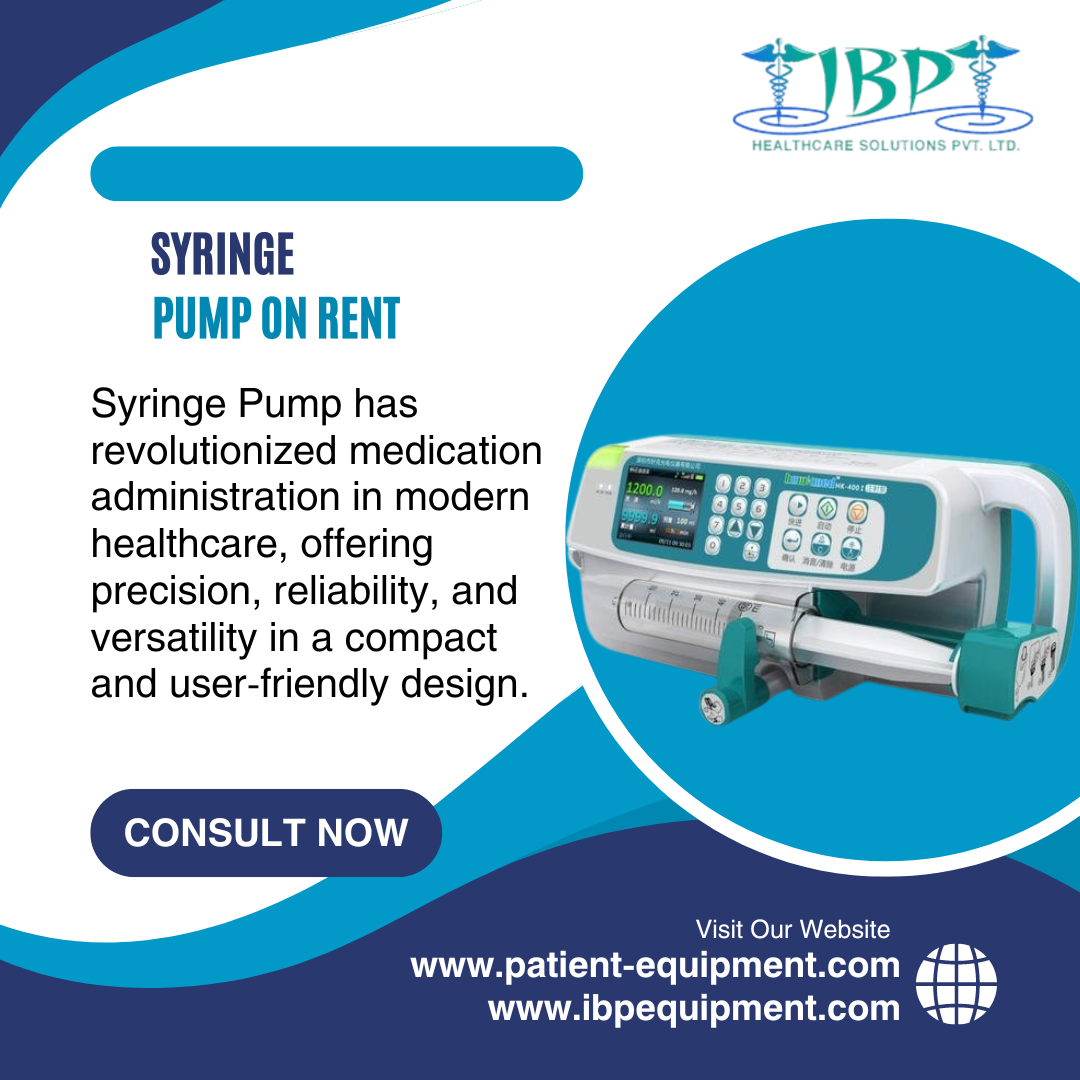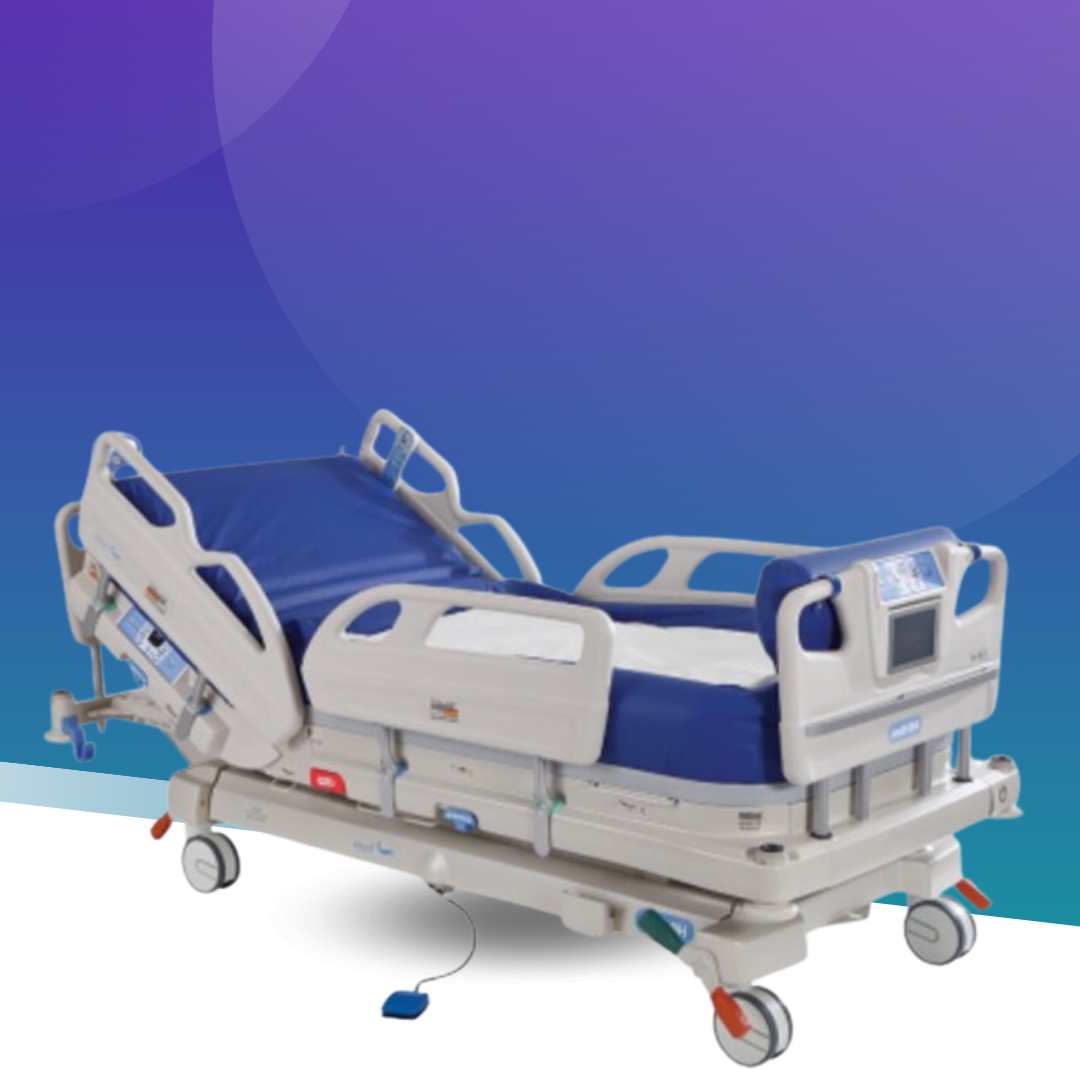
SYRINGE PUMP ON RENT
SYRINGE PUMP ON RENT
In the intricate ecosystem of modern healthcare, the
efficient administration of medications and fluids is paramount for patient
well-being and recovery. Among the array of medical devices aiding this
process, syringe pumps stand out as critical tools. These devices, designed to
precisely deliver fluids and medications in controlled doses, have become
indispensable in various medical settings, from hospitals to home care. In
recent years, the option of renting syringe pumps has emerged as a practical
solution for healthcare providers seeking flexibility and cost-effectiveness. This
article explores the evolution, benefits, and impact of syringe pump rentals in
the healthcare industry.
Understanding Syringe Pumps:
Syringe pumps are electromechanical devices designed to
infuse fluids or medications into a patient's body in controlled amounts over a
specified period. Unlike gravity infusion, which relies on the force of gravity
to deliver fluids, syringe pumps offer precise control over the infusion rate,
volume, and timing. This level of accuracy is crucial in situations where even slight
variations in medication dosage can have significant consequences.
The Evolution of Rental Services:
Traditionally, healthcare facilities invested substantial
capital in purchasing medical equipment like syringe pumps. However, with the
evolving dynamics of healthcare delivery and budget constraints, many providers
have turned to rental options as a viable alternative. The concept of renting
medical equipment has gained traction due to its potential to lower upfront
costs, provide access to advanced technology, and offer flexibility in
equipment management.
Benefits of Syringe Pump Rentals:
1. Cost-Effectiveness:
Renting syringe pumps eliminates the need for large upfront investments,
allowing healthcare facilities to allocate their capital more efficiently.
Instead of purchasing equipment that may become obsolete or underutilized,
renting enables providers to pay only for the equipment they need, when they
need it.
2. Flexibility and Scalability:
Healthcare needs can vary widely based on factors such as patient volume,
specialty services, and seasonal fluctuations. Syringe pump rentals offer
flexibility, allowing providers to adjust their equipment inventory according
to changing demands. Whether scaling up during peak periods or scaling down
during lulls, rental services provide the agility needed to optimize resource
allocation.
3. Access to Advanced Technology:
The rapid pace of technological innovation in the medical device industry means
that newer, more advanced syringe pumps are constantly being introduced.
Renting allows healthcare providers to access the latest equipment without the
financial burden of frequent upgrades. This ensures that patients benefit from
state-of-the-art technology while providers remain competitive in the market.
4. Maintenance and Support:
Rental agreements often include maintenance and support services provided by
the equipment supplier. This relieves healthcare facilities of the
responsibility of equipment upkeep, troubleshooting, and repairs, reducing
downtime and ensuring uninterrupted patient care. Additionally, rental
providers typically offer training and technical assistance to healthcare
staff, ensuring safe and effective use of the equipment.
Impact on Patient Care:
The adoption of syringe pump rentals has had a tangible
impact on patient care delivery across various healthcare settings. By ensuring
access to reliable, up-to-date equipment, rental services contribute to the
overall quality and safety of medical interventions. Patients benefit from
accurate medication administration, reduced risk of errors, and improved
treatment outcomes. Moreover, the flexibility afforded by rental agreements
allows healthcare providers to respond promptly to patient needs, enhancing the
overall patient experience.
Challenges and Considerations:
While syringe pump rentals offer numerous benefits,
healthcare providers must navigate certain challenges and considerations when
incorporating rental services into their operations. These may include:
1. Contractual Agreements:
Rental agreements typically involve contractual commitments, including terms of
service, pricing structures, and equipment return policies. Healthcare
providers must carefully review and negotiate these agreements to ensure
alignment with their operational needs and budgetary constraints.
2. Equipment Availability:
Demand for rental equipment can fluctuate, particularly during peak seasons or
in response to public health emergencies. Healthcare providers may encounter challenges
in securing the desired quantity and type of syringe pumps within their
preferred timeframe. Effective inventory management and proactive communication
with rental providers are essential to mitigate these issues.
3. Integration with Existing Systems:
Seamless integration of rental syringe pumps with existing healthcare systems
and workflows is crucial for operational efficiency and patient safety.
Healthcare providers should assess compatibility with electronic medical
records (EMR) systems, medication management platforms, and clinical protocols
to ensure smooth integration and data interoperability.
4. Training and Education:
Adequate training and education are paramount to ensuring the safe and
effective use of syringe pumps by healthcare staff. Rental providers should
offer comprehensive training programs tailored to the specific needs and
competencies of end-users. Ongoing support and access to educational resources
further enhance staff proficiency and confidence in utilizing the rented equipment.
Future Directions:
The growing popularity of syringe pump rentals reflects
broader trends in the healthcare industry, where providers increasingly
prioritize flexibility, efficiency, and value-based care. As technology
continues to evolve and healthcare delivery models evolve, rental services are
likely to play an expanded role in meeting the dynamic needs of healthcare
organizations. Advancements in remote monitoring, predictive maintenance, and
artificial intelligence hold the potential to further optimize the rental
experience, enhancing equipment utilization, reliability, and
cost-effectiveness.
Conclusion:
Syringe pump rentals represent a compelling solution for
healthcare providers seeking to optimize resource allocation, enhance patient
care, and adapt to evolving industry dynamics. By offering cost-effective
access to advanced technology, flexibility in equipment management, and
comprehensive support services, rental providers empower healthcare
organizations to deliver high-quality, patient-centered care. As the healthcare
landscape continues to evolve, syringe pump rentals are poised to remain a
valuable asset in the quest for operational excellence and improved patient
outcomes.
 (1).png)

.png)
.png)
.png)
.png)
.png)
.png)
.png)

Enquiry Now